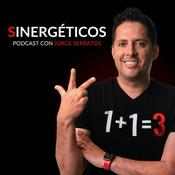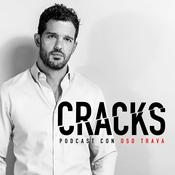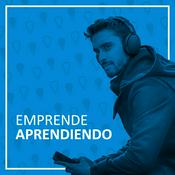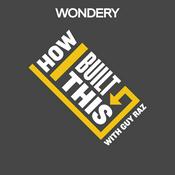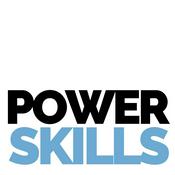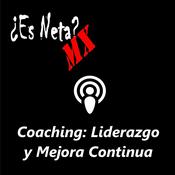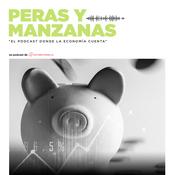306 episodios
100 – Unclogging Your Creative Flow: Why Tying Up Loose Ends Unlocks Opportunities
16/8/2025 | 21 minHave you ever felt like you're spinning your wheels creatively, unable to move forward despite having talent and ideas? Do you find yourself surrounded by half-finished projects, unopened mail, and organizational chaos that somehow feels manageable but might actually be holding you back?
Perhaps you've dismissed the importance of "getting organized" as something that doesn't really affect your creative output—after all, you know exactly where that important document is in the third pile from the left, halfway down.
In this practical and eye-opening episode of Creativity, Excitement, and Emotion, David explores the often-overlooked connection between tying up loose ends and creative breakthroughs.
Drawing from his current experience of managing a move, car repairs, client projects, and the concept of "vibrational escrow," he reveals how uncompleted tasks and disorganization can literally block opportunities from flowing into your life.
Whether you're struggling with creative blocks, feeling overwhelmed by commitments, or simply wondering why success feels elusive despite your efforts, this episode provides both the framework and motivation needed to clear the energetic and practical clutter that may be standing between you and your next breakthrough.
Sponsors:
Productivity, Performance & Profits Blackbook: Get a free copy of the “Definitive Guide to Productivity for Entrepreneurial Artists.”
Get coaching: Stuck in your creative career? Not sure what to do next? Want to take things further? Book your personalized coaching session with David today.
Highlights:
00:17 – Tying up loose ends
01:23 – Why organization matters
03:40 – David’s current loose end inventory
10:00 – What David has learned and discovered on this journey
19:43 – Closing thoughts
Summary:
In this practical and revealing episode, David delves into the often-overlooked connection between organization and creative success. Through his personal experience of managing multiple loose ends—from car repairs to moving to client projects—he demonstrates how incomplete tasks and disorganization can actually block opportunities from manifesting in your creative career.
Key Themes & Takeaways
The concept of "vibrational escrow" and how incomplete tasks block incoming opportunities
Why top performers tend to be highly organized and how this affects creative output
The mental clarity that comes from reducing commitments and completing projects
How delegating to experts frees up creative energy for higher-value activities
The surprising connection between physical organization and new opportunity flow
The Vibrational Escrow Principle
David introduces a compelling concept about how incomplete tasks affect our ability to receive new opportunities:
The idea that certain things are "waiting for you" but require completion of current tasks to arrive
How unfinished projects occupy mental space and block creative flow
Why defining when something is "done" is crucial for moving forward
The importance of unclogging your system to allow new opportunities to flow
"When you don't flow things out, it does affect your ability to create, attract, and manifest what is already on its way... there's things that are for you, waiting for you, and they're gonna come to you at the right time, but that doesn't mean you don't have to do anything."
This framework provides a compelling reason for addressing organizational challenges beyond simple productivity benefits.
David's Current Loose Ends Inventory
To illustrate the principle, David shares his actual current list of items requiring completion:
Car repairs and maintenance – delegating to automotive experts rather than ignoring warning signs
Moving logistics – relocating within the Vancouver area with minimal possessions but strategic planning
Furniture acquisition – purchasing only essentials (bed, desk, office chair) for the new space
Current rental cleanup – hiring professional cleaners rather than doing it himself
Project management – completing client work while passing some projects to qualified beginners
File organization – addressing physical mail and documentation systems
Accounting maintenance – implementing regular bookkeeping rather than annual rushes
This practical inventory demonstrates how even successful creators accumulate loose ends that require systematic attention.
The Expert Delegation Strategy
David emphasizes the importance of delegating tasks outside your zone of genius:
Why hiring professional cleaners makes more sense than doing it yourself
How automotive expertise prevents costly mistakes and ensures quality work
The recognition that managing people may not be everyone's entrepreneurial strength
The value of identifying your weaknesses and finding others who excel in those areas
"I'm delegating responsibility to a capable expert... It's generally not the best and highest use of my time and energy. And so, it is much better in the hands of an expert who I know is going to do a thorough job."
This perspective helps creators focus their energy on activities that truly require their unique skills and talents.
The Organization-Opportunity Connection
Drawing from Dr. Robert Anthony's work, David explores how physical organization correlates with professional opportunities:
The claim that "top performers are always organized"
How organizing and purging physical spaces can result in an inflow of new opportunities
Why clearing your office, filing documents, or cleaning up digital spaces seems to create space for new possibilities
The psychological and energetic effects of completing mundane tasks
"When you actually sit down and do that, it seems to make a difference. New opportunities start to flow in. So, if things are slow in your career, if things are slow in your business right now, and you're looking for more inflow, clean up, tidy up, tie up loose ends."
While acknowledging this might sound "crazy," David validates the experiential reality many creators report when they address organizational backlogs.
The Mental Clarity Factor
David shares a powerful personal example about how reducing commitments improves creative thinking:
His experience with home ownership becoming a mental burden that consumed creative energy
How selling his house and moving to a more affordable basement suite created clarity
The connection between financial stress and creative block
How debt-free living enabled him to start writing books
"I had so much clarity of mind that didn't exist before, and that made it possible for me to start writing books... what stressors do you have in your life that are keeping you from fully engaging in the projects you actually say you wanna do?"
This honest reflection demonstrates how external circumstances can either support or undermine creative capacity.
The Management Realization
David candidly admits to discovering a weakness in his entrepreneurial skill set:
Recognition that he doesn't enjoy managing people despite being promoted to team lead in his day job
The difference between workplace management (structured, supported) and entrepreneurial management (independent, unstructured)
Why micromanagement feels antithetical to his values and working style
The importance of finding people who excel at people management to advance projects
"I realized a major weakness of myself, at least in an entrepreneurial capacity... managing people is not one of my strengths. And I especially hate micromanaging."
This self-awareness helps explain why some highly capable creators struggle to scale their work beyond solo efforts.
Action Steps for Creators
For artists looking to apply these principles:
Conduct an honest inventory of incomplete tasks and projects in your life
Define clear completion criteria for each project to avoid endless mental loops
Identify tasks that could be delegated to experts rather than handled personally
Address financial and organizational stressors that may be consuming creative mental space
Experiment with clearing physical and digital spaces to see if opportunities increase
Recognize your entrepreneurial strengths and weaknesses to make better delegation decisions
The Systematic Approach
David concludes by emphasizing the importance of creating sustainable organizational habits:
Moving from crisis-driven organization to consistent maintenance
Finding integrated systems that handle multiple organizational needs (calendar, tasks, contacts)
The importance of regular maintenance rather than annual organizational binges
How small, consistent efforts prevent major organizational overhauls
Additional Context
This episode arrives during a period when many creators are reassessing their relationship with productivity and organization. Recent research from the Creative Professionals Institute shows that 78% of successful creatives maintain some form of regular organizational practice, though methods vary widely based on personality and working style.
The concept David explores aligns with growing interest in the connection between physical environment and creative output. Studies in environmental psychology suggest that cluttered or disorganized spaces can indeed impact cognitive load and creative thinking, providing scientific backing for the more esoteric claims about organization affecting opportunity flow.
Through practical examples and honest self-reflection, this episode provides both motivation and methodology for addressing the organizational aspects of creative careers that are often overlooked but may be more important than traditionally recognized.099 – When Music Chooses You: Recognizing Success and Embracing Unexpected Opportunities
02/8/2025 | 26 minHave you ever felt like you've been pushing and striving for opportunities in your creative career, only to find that your biggest breakthroughs came when you weren't actively chasing them? Do you sometimes struggle to recognize your own accomplishments because you're so focused on what you haven't achieved yet?
Perhaps you've wondered why some artists seem to effortlessly attract the right opportunities while others work tirelessly with little to show for it.
In this deeply reflective episode of Creativity Excitement Emotion, David shares how music is unexpectedly making a comeback in his life, not through force or relentless pursuit, but by choosing him when the conditions were finally right.
Drawing from his journey of building financial stability through his tech contract and growing Spark Infinity to nearly 2,000 members, he explores the crucial difference between opportunities you chase and those that find you when you're ready.
Through honest reassessment of his previous music career and practical insights about finding mentors who've already achieved what you want, David offers both validations for non-linear creative paths and actionable guidance for recognizing success when it's staring you in the face.
Sponsors:
Productivity, Performance & Profits Blackbook: Get a free copy of the “Definitive Guide to Productivity for Entrepreneurial Artists.”
BUMP Global TV: Want to join a growing network of heart-centered entrepreneurs exploring and creating new opportunities together? Check out BUMP.
Get coaching: Stuck in your creative career? Not sure what to do next? Want to take things further? Book your personalized coaching session with David today.
Highlights:
00:17 – Documenting the journey
00:53 – Hard lesson learned
03:19 – Being chosen
04:41 – Reflecting on a music career that was buried in a shallow grave
08:47 – The revival of a music career
14:24 – Tying up loose ends
16:54 – Excited for what’s to come
18:10 – Recognizing your successes
21:23 – One step you can take to shortcut years of anguish
Summary:
In this reflective episode, David shares how music is unexpectedly making a comeback in his life, arriving not through force or planning but by choosing him.
Through candid self-assessment, he explores the lessons learned from his previous music career, the importance of recognizing actual accomplishments amid failures, and why finding mentors who've already achieved what you want is crucial for avoiding years of guessing and reverse-engineering.
Key Themes & Takeaways
The difference between forcing projects and allowing opportunities to choose you
How financial stability and having a home base enable better decision-making about creative opportunities
The importance of taking a "sober" view of past accomplishments rather than dwelling on perceived failures
Why skipping the step of finding mentors or proven methods leads to years of inefficient guessing
The reality that success comes from what you do with failures, not from avoiding them entirely
The Foundation Lesson
David begins by reinforcing a crucial life lesson learned through a difficult experience:
The necessity of having both a home base and financial stability for life to function well
How his current big tech contract and Spark Infinity success provide the foundation for better choices
The distinction between people who can thrive as nomads (with family safety nets) versus those who need more stability
Why some people require different structural supports to be creative and productive
"If I don't have a place to call home, and if I don't have some kind of financial stability... my life tends to spiral out of control. And for some people, I'm telling you, that's not the case... But I think what I've learned for myself... is if there's no home to go back to and my financial life is variable at best, things do tend to spiral out of control."
This foundational insight provides context for understanding how different people require different conditions to thrive creatively.
Things Choosing You vs. You Choosing Things
David explores a fascinating shift in how opportunities have been presenting themselves:
The contrast between actively choosing projects that didn't work out and being chosen by opportunities that flourished
How the big tech contract and Spark Infinity both "chose" him rather than being pursued
The growth of Spark Infinity from 4-5 members to over 1,900 in seven months
Why sometimes the best opportunities come when you're not actively seeking them
"In the last year and a half or so, really what I've noticed is instead of me choosing things, things are choosing me... the things I've chosen didn't necessarily go anywhere or didn't do that well... what I can say about things that have chosen me that have worked well is, of course, the big tech contract and Spark Infinity."
This observation challenges the conventional wisdom about always being proactive in pursuit of opportunities.
The Music Career Perspective Shift
David offers a remarkably honest reassessment of his previous music career:
Playing over 300 shows and becoming an award-winning composer
The tendency to belittle past accomplishments while focusing on unmet goals
Recognition that the career was "humble" and "not glamorous" but still substantial
What he would have done differently, particularly regarding recording and releasing more music
"Looking back, like having played over 300 shows and having become an award-winning composer and some of the other accomplishments that I've been able to cultivate to this point, I realize it is just altogether too easy to not see things for what they are and not look at it from... a sober point of view."
This honest assessment demonstrates the importance of recognizing actual achievements rather than measuring everything against unrealistic expectations.
The Unexpected Musical Revival
Music is now re-entering David's life in unexpected ways:
Multiple people asking about his current musical activities
New project opportunities involving music composition with good compensation
The natural evolution from "maybe I'll try this" to concrete opportunities appearing
How this arrival feels timely despite being unplanned
"What has been popping up in my life is some good opportunities... I began work on a project involving writing and music... I think the compensation is very good. And especially based on a lot of other projects I've worked on along the way... I'm clearly at a different time or different space in my career, a different season in my career right now."
This section illustrates how careers can have multiple chapters and how opportunities often arrive when foundation and readiness align.
The Success Recognition Challenge
David identifies a crucial pattern in how people relate to their own accomplishments:
The tendency to focus on failures while overlooking actual successes
His own community-building track record: contributing to a 22,000-member Facebook page, co-founding another with 1,900+ likes, and growing Spark Infinity to 1,900+ members in seven months
How this pattern of dwelling on failures while ignoring successes create unnecessary discouragement
The importance of taking inventory of what has actually worked
"I am continually amazed by the things that I've actually accomplished when I take a sobering look at it... one of the things I can see from that is I actually am a good community builder. Although again, there were some experiments and there were some failures... And it's so easy to dwell on those versus recognizing the successes you actually have."
This insight provides valuable perspective for creators who may be undervaluing their own track records.
The Method-Finding Imperative
Perhaps the most actionable insight in the episode concerns the importance of finding proven methods:
Why trying to reverse-engineer successful people's strategies leads to years of inefficient guessing
The crucial step of finding mentors, courses, or coaches who have already achieved what you want
How this applies across all areas: marriage, artistic careers, business development
The distinction between building foundations (2-5 years) and achieving long-term success (10-30 years)
"Don't skip that step. Really, truly, because if you do that, you can be guided in the right direction, gain momentum, find success in a way that you might not otherwise... without the method, you're just guessing, you're trying to reverse engineer what someone else has done."
This practical advice addresses one of the most common mistakes creative entrepreneurs make.
Action Steps for Creators
For artists navigating their own career development:
Take an honest inventory of your actual accomplishments rather than focusing solely on unmet goals
Create stability in basic life areas (home, finances) to enable better creative decision-making
Remain open to opportunities that choose you rather than only pursuing what you think you want
Find mentors or proven methods before attempting to reverse-engineer success
Recognize that success often comes from how you handle failures, not from avoiding them
Be prepared to recognize and act on opportunities when they arrive
Looking Forward
David concludes with practical considerations about managing current commitments while embracing new opportunities:
The need to complete or pass on existing projects to make room for music opportunities
The excitement of discovering that there are still things left to accomplish in music
The better reward-to-effort ratio that comes with experience and timing
Preparation for recognizing and acting on success when it arrives
Additional Context098 – When Projects Turn Toxic: Navigating the Integrity vs. Self-Preservation Dilemma
19/7/2025 | 23 minHave you ever enthusiastically committed to a project that gradually revealed itself to be a frustrating, poorly managed nightmare? Do you find yourself torn between honoring your commitments and protecting your mental health when collaborative work turns toxic or simply exhausting?
Perhaps you've wondered whether persisting through difficult projects builds character, or if knowing when to walk away is actually the wiser choice for your creative career and personal well-being.
In this candid episode of Creativity Excitement Emotion, David shares his real-time experience with an education reform project that started with noble intentions but quickly devolved into the kind of volunteer work that leaves participants feeling deflated and questioning their involvement.
Through honest reflection on what makes projects turn sour—from poorly defined tasks to unrealistic time expectations—he explores the tension between maintaining integrity through commitment and practicing self-preservation by setting boundaries.
Whether you're currently stuck in a project that's draining your energy or simply want to better navigate future collaborative commitments, this episode offers both the framework and permission needed to make decisions that honor both your professional relationships and your personal well-being.
Sponsors:
Productivity, Performance & Profits Blackbook: Get a free copy of the “Definitive Guide to Productivity for Artists and Entrepreneurs.”
Highlights:
00:17 – Projects that suck
02:59 – The situation
12:27 – Backing out
17:38 – Character and integrity
21:39 – Closing thoughts
Transcript:
In this deeply personal episode, David explores the challenging territory of projects that start with good intentions but gradually reveal themselves to be draining, poorly managed, or outright toxic.
Drawing from his current experience with an education-focused volunteer project, he examines the tension between maintaining integrity through commitment and protecting your well-being by knowing when to walk away.
Key Themes & Takeaways
The inevitable reality that everyone will encounter projects that initially inspire but eventually disappoint
The distinction between projects that merely "suck" versus those that are genuinely toxic
How character and integrity factor into decisions about following through on commitments
The importance of protecting your mental health while maintaining professional relationships
Why clear task definition and reasonable expectations are crucial for volunteer projects
The Education Project Reality Check
David begins by sharing his involvement in an education reform project that exemplifies how good intentions can lead to frustrating experiences:
His genuine passion for education system reform and supporting teachers
The volunteer nature of the work with minimal tangible rewards beyond testimonials
How the project atmosphere gradually shifted from inspiring to deflating
The realization that other team members were experiencing similar frustrations
"I went into this feeling pretty good, and then after a few meetings, kind of started to feel deflated and, ‘oh, no, is this going to be one of those?’ At first, I really just thought it was me... After meeting number three or four, other people started complaining and leaving.”
This candid assessment demonstrates how even well-intentioned projects can become problematic when fundamental management issues arise.
The Anatomy of Project Deterioration
David identifies specific factors that can poison otherwise worthy projects:
Excessive rigidity and structure that removes the fun and inspiration from volunteer work
Poorly defined tasks that leave team members confused about expectations and deliverables
Leadership that fails to break down complex actions into manageable time commitments
Unrealistic assumptions about how much time volunteers will dedicate to unpaid work
"A lot of the weekly tasks are not well-defined. So, there are many missing pieces... clearly the leader is not totally clear on the steps there... it would have been beneficial to take some time to break down these actions and tasks into smaller pieces that are manageable and relatively easy to do."
This analysis provides valuable insight for both project leaders and participants about what makes collaborative work sustainable.
The Dan Kennedy Philosophy
David introduces a practical framework for evaluating problematic commitments:
The "three-day rule" – if you wake up thinking about a project negatively for three consecutive days, something is wrong
How this principle, originally applied to client relationships, extends to any collaborative commitment
The importance of communicating concerns before reaching the breaking point
Why addressing issues directly often leads to constructive solutions
"I stand by what Dan Kennedy said about clients, which is basically, if I wake up thinking about you more than three days in a row and I'm not sleeping with you, something is wrong ."
This practical guideline offers a concrete way to assess when projects have crossed from challenging to problematic.
The Character vs. Self-Preservation Tension
David explores one of the most difficult aspects of project management – balancing integrity with self-care:
How saying yes to commitments creates character obligations to follow through
The implied understanding that we'll persist even when conditions become difficult
The distinction between building character through adversity versus subjecting yourself to abuse
Personal examples of toxic environments (abusive basketball coach in Japan) that demonstrate when leaving is necessary
"If you say yes to a project and you've committed to it, then it's still a matter of your character and your integrity... But putting yourself in a situation intentionally that is clearly toxic and has the potential to escalate beyond what would be reasonable in terms of abuse, I don't think that's a situation where you want to stick around."
This nuanced discussion acknowledges both the value of persistence and the importance of self-protection.
The Relationship Investment Perspective
David addresses how backing out of projects affects professional relationships:
Why making excuses to leave projects early constitutes a "withdrawal" from relationships
How these decisions can impact future opportunities and professional connections
The importance of considering long-term relationship consequences when making exit decisions
The connection between current project behavior and future relationship availability
"Most people who've been leaders for a while... kind of can read people when they're lying, and they might let you get away with it. But bottom line, you are not making a deposit in that relationship. You're making a big withdrawal."
This perspective helps creators understand the broader implications of their commitment decisions beyond immediate project outcomes.
The Graceful Exit Strategy
When projects become untenable, David advocates for honest, direct communication:
The value of explaining what isn't working rather than making excuses
How addressing issues directly can sometimes lead to project improvements
The challenge of communicating concerns in hostile environments
Why transparency often preserves relationships better than deception
"I like to make graceful exits where and when I can and make people aware of what is not working for me."
This approach models how to maintain integrity while protecting personal well-being.
Action Steps for Creators
For artists and creators facing difficult project decisions:
Apply the three-day rule to assess whether projects have become genuinely problematic
Communicate concerns directly before reaching the breaking point
Distinguish between projects that are merely challenging versus those that are toxic
Consider the long-term relationship implications of exit decisions
Protect your mental health while maintaining professional integrity
Set clear boundaries about time commitment for volunteer projects
Looking Forward
David concludes with openness about his current project's potential for improvement:
Hope that direct communication will lead to better task definition and project management
Recognition that sometimes confronting issues is necessary for project success
The understanding that staying committed while advocating for improvements can benefit everyone involved
Additional Context
This episode arrives during a period when many professionals are reassessing their relationship with work and volunteer commitments. Recent studies show that 68% of professionals report feeling overwhelmed by poorly managed projects, with volunteer work being particularly susceptible to scope creep and unclear expectations.
The distinction David draws between character-building adversity and toxic environments reflects growing awareness about workplace mental health and the importance of setting boundaries. Research from the American Psychological Association indicates that people who maintain clear boundaries in volunteer commitments report 34% higher satisfaction with their overall work-life balance.
Through honest reflection and practical frameworks, this episode provides valuable guidance for navigating one of the most common challenges in creative careers – knowing when to persist through difficulty and when to protect yourself by walking away.
By modeling transparent communication and thoughtful decision-making, David offers a roadmap for maintaining both integrity and well-being in collaborative creative work.097 – Don’t Wait Until Your Golden Years: The Musician’s List-Building Wake-Up Call
04/7/2025 | 16 minHave you ever wondered what happens to talented musicians who spend decades perfecting their craft but never build an audience? Are you currently so focused on creating great work that you're neglecting the relationships and contact lists that could sustain your career in the future? Perhaps you assume that your talent alone will eventually attract the recognition and financial rewards you deserve, or that social media platforms will always provide access to the people who matter most to your career.
In this eye-opening episode of Creativity Excitement Emotion, David shares a sobering case study of working with a veteran musician in his golden years who possesses substantial talent and decades of excellent work, but virtually no audience to monetize it.
Through this real-world example, David reveals the harsh reality of what happens when list-building and relationship maintenance are neglected throughout a creative career—and why it becomes exponentially harder to build an audience when you finally need one.
Whether you're just starting your musical journey or have been creating for years without systematically building your contact database, this episode provides both the wake-up call and practical strategies needed to ensure you don't find yourself with limited options when you're ready to monetize your life's work.
Sponsors:
Productivity, Performance & Profits Blackbook: Get a free copy of the “Definitive Guide to Productivity for Artists and Entrepreneurs.”
Highlights:
00:17 – This is the situation you don’t want to find yourself in…
01:55 – The preventable reality
03:26 – Relying on systems that may not last
05:46 – Small practices that build rapport
06:35 – The value of building relationships with a wide array of people
07:59 – Updating your list as time moves forward
09:52 – You don’t have to do this perfectly
10:49 – Refreshing your database
11:17 – Monetization challenges
13:51 – Closing thoughts
Summary:
In this sobering and practical episode, David shares insights from working with a veteran musician in his golden years who finds himself with decades of excellent work but virtually no audience to monetize it.
Through this real-world case study, David delivers both a cautionary tale and actionable guidance about the critical importance of building and maintaining contact lists throughout a creative career, before it's too late.
Key Themes & Takeaways
The stark reality of reaching later career stages without an audience despite quality work
Why list-building and relationship maintenance are non-negotiable for sustainable creative careers
The predictable ways networks naturally shrink over time without intentional effort
How to build meaningful contact databases that provide options for future monetization
The difference between social media followers and owned contact information
The Golden Years Reality Check
David opens with a sobering case study of a veteran musician facing monetization challenges:
A client with substantial body of work but minimal audience or contact list
Decades of performances and collaborations that never translated to owned relationships
The harsh reality of having limited options when trying to monetize without an existing audience
How even talented, experienced creators can find themselves isolated in their later years
"He asked me how we were going to monetize his work. This is where I got to talking about his email list. It's not something that he spent a whole lot of time, in fact, really any time building through the years... he did not have a list, he did not have traffic, he did not have a following or an audience."
This opening immediately establishes the stakes while providing a clear example of what happens when relationship-building is neglected throughout a career.
The Preventable Crisis
David emphasizes that this situation, while common, is entirely avoidable:
The same time resources available to everyone (24 hours, 365 days) can be used differently
How craft development often happens in isolation, but audience building requires different strategies
The missed opportunities at every performance, collaboration, and professional interaction
Why waiting until monetization becomes urgent makes the challenge exponentially harder
"There's something you can do about it today, tomorrow, the day after. You’ve got the same 24 hours a day everyone else does... with all the performances he's done, with all the people he's worked with... There were surely handshakes, there were surely people met along the way."
This section emphasizes the urgency of taking action while also acknowledging that most musicians face this challenge, as audience building isn't an intuitive aspect of artistic practice.
The Network Shrinkage Phenomenon
David explains the natural forces that erode professional networks over time:
How life transitions (family, career changes, relocations) naturally separate people
The tendency to form "situational friendships" that don't survive context changes
The role of neglect and laziness in allowing valuable relationships to fade
Why people often look up after 10-20 years to find their networks dramatically reduced
"Generally, people's lives do shrink through the years. And part of this... is usually due to people's laziness and neglect. Because what so often happens is people start a family in their 20s, 30s, and 40s, and then a good 10, 15, 20 years go by before they look up to see who's still around."
This analysis helps readers understand why passive relationship maintenance leads to isolation, making the case for proactive list-building efforts.
The Platform Dependency Trap
David challenges the common assumption that social media platforms provide security:
The unreliability of depending on platforms like Facebook for long-term connection
How platform algorithms and policies can eliminate access to your own contacts
The question of whether current platforms will exist or function similarly in 20-30 years
Why owned contact information (email, phone, address) provides more security than platform followers
"Do you really believe that Facebook is still going to be here? Or if it is, is it going to be exactly the same as it is now? And when you get there, will you have the same kind of access to the people that you have right now?"
This perspective shift helps creators understand the difference between borrowed audiences and owned relationships.
The Relationship Maintenance System
David provides practical guidance for maintaining professional relationships:
Simple systems like Facebook birthday notifications that take minimal time but maintain a connection
The importance of having contacts across diverse industries and interests
Why calling people on birthdays creates stronger connections than text messages
The strategic value of maintaining relationships with people at different career stages
"How long would that take you to do? Five seconds, 10 seconds in the morning... It would take you five seconds, 10 seconds to log into Facebook, tap a few buttons, and send out birthday notifications, just to keep things fresh with the people you've met along the way."
These practical suggestions make relationship maintenance feel achievable rather than overwhelming.
The Portfolio Approach to Networking
Drawing inspiration from an Instagram post about knowing people in various professions, David advocates for strategic relationship diversity:
The value of having contacts across different industries and specialties
How diverse networks provide more opportunities and resources
Why limiting relationships to only similar people reduces future options
The practical benefits of knowing people in various professional capacities
"You need to know people, and you should know people in a variety of categories if you're the kind of person that attaches any value to who you are."
This broader perspective on networking helps creators think beyond their immediate creative community.
The Refresh Reality
David addresses one of the most difficult aspects of long-term relationship building:
The inevitable reality that people will pass away or become unavailable
Why lists and networks require continuous refreshing with new connections
How to balance grieving losses with practical list maintenance
The importance of not relying solely on decades-old relationships
"The dispassionate part about this is that you've got to keep refreshing your list... when you're ready, begin refreshing your list. And that includes making new friendships, that includes making new connections."
This honest discussion of mortality and change provides necessary context for understanding relationship building as an ongoing process.
The Marketing Challenge
David explains the limited options available when audience building has been neglected:
How the lack of owned audience restricts monetization strategies to expensive advertising
Why starting audience building in later career stages faces time constraints
The challenge of creating irresistible offers without existing audience feedback
How marketing becomes exponentially more difficult and expensive without owned lists
"I don't have options. He has no social media presence aside from YouTube, and he doesn't have an email list... So this is what I'm left with, is advertising and playlist promotion, and other than that, what have I got?"
This section illustrates the real-world consequences of neglecting audience building while there's still time to address it.
Action Steps for Musicians
For creators looking to avoid this situation, David suggests:
Start collecting contact information at every performance and professional interaction
Create systems for regular relationship maintenance (birthday messages, check-ins)- Have you ever felt the sting of creating something you genuinely believe is good, only to watch it languish in obscurity while inferior work gains massive attention? Do you sometimes wonder if the lack of recognition for your creative efforts means you should question your abilities, or if there are other factors at play that successful gurus conveniently ignore when dispensing their "simple" advice about quality and sales?
In this fired-up episode of Creativity Excitement Emotion, David tackles a particularly frustrating piece of guru wisdom: "If your book isn't selling, it sucks."
Drawing from his journey of reviewing past work while preparing his upcoming book "Champion of Artistic Success," he dismantles this oversimplified view with a four-category framework that reveals the complex relationship between quality and commercial success.
Using examples from both publishing and the music industry, David challenges the notion that sales equal quality, offering validation for creators producing excellent work without recognition while exposing how established figures' advantages skew their perspective on what it takes to succeed.
Whether you're questioning your abilities or simply seeking a more nuanced understanding of creative success, this episode provides both the analytical framework and emotional support needed to continue creating quality work regardless of immediate market response.
Sponsors:
Productivity, Performance & Profits Blackbook: Get a free copy of the “Definitive Guide to Productivity for Artists and Entrepreneurs.”
Highlights:
00:17 – Stupid guru quotes
01:18 – The statement that set David off
01:54 – Developing Champion of Artistic Success, Vol. 1
02:54 – Crappy books that sell
04:13 – Creating work that doesn’t sell
06:11 – The music industry parallel
07:32 – Nuances that affect sales performance
09:14 – The four-category framework
09:32 – Pop music of recent years
11:09 – Closing remarks
Summary:
In this passionate episode, David Andrew Wiebe challenges a provocative statement from an unnamed guru: "If your book isn't selling, it sucks."
Drawing from personal experience and industry observations, he dismantles this oversimplified view by exploring the complex relationship between quality and commercial success, particularly in creative fields where excellent work often goes unrecognized while inferior products dominate the marketplace.
Key Themes & Takeaways
The false equation between sales performance and artistic quality
How market timing, trends, and audience awareness affect the reception of good work
The four-category framework for understanding the relationship between quality and sales
Why persistence and consistent creation matter more than perfect output
The role of marketing resources and industry positioning in determining commercial success
The Guru Statement That Sparked Outrage
David begins by addressing a statement that particularly frustrated him from a well-known guru:
The claim that books that don't sell well simply "suck"
Why this black-and-white thinking fails to account for the complexity of creative markets
The personal impact of such statements on creators producing quality work without recognition
How guru status and existing audiences skew perspectives on what constitutes "success"
"His comment was, well, if you're not selling that many books... it's because your book sucks. Plain and simple. And I'm like, gee, you know, I don't think it's that black and white."
This opening challenge sets the stage for a nuanced exploration of factors beyond quality that influence commercial success.
The Personal Journey of Improvement
David candidly reflects on his creative evolution:
Reviewing past blog posts while preparing "Champion of Artistic Success"
The honest assessment that not everything he created was brilliant
How disciplined practice led to genuine improvement over time
The realization that consistency matters more than perfection in developing craft
"Looking back on some of this stuff, I'm like, ‘this was really not all that good,’ or ‘it's not that revolutionary, ’ or ‘I'm talking too much about myself.’ There were a lot of flawed blog posts... But I showed up, I produced good work, and sometimes hit that brilliant mark too."
This vulnerable self-assessment demonstrates the reality of creative development – that improvement comes through sustained effort rather than immediate perfection.
The Four-Category Framework
David proposes a more nuanced view of the quality-sales relationship:
Great work that sells – The ideal scenario most creators hope for
Great work that doesn't sell – Quality content lacking marketing support or market timing
Poor work that sells – Products succeeding due to marketing, timing, or trend alignment
Poor work that doesn't sell – Low-quality content that finds no audience
"There are basically four categories. There's stuff that's great and sells, there's stuff that's great and doesn't sell, there's stuff that sucks and sells, and there's stuff that sucks and doesn't sell. To me, that's a more accurate view. That's accurate thinking."
This framework provides creators with a more realistic understanding of market dynamics beyond simple quality assessment.
The Music Industry Parallel
Using contemporary pop music as an example, David illustrates how commercial success often diverges from artistic merit:
The production value and marketing resources behind major pop acts
The distinction between the total product (image, branding, videos) and the core musical content
How talented producers and musicians can elevate less skilled performers
The role of trend-following versus innovation in commercial success
"In the music business, especially in the last 10 years or so... the pop music... sucks and still sells like crazy. We all know it's not about the music. It's about the product... But I don't think the music's any good."
This analysis helps creators understand that commercial success often depends on factors beyond their core creative output.
The Challenge of Recognition
David addresses the frustrating reality facing many quality creators:
The existence of excellent work that remains unrecognized
How market timing affects the reception of innovative or ahead-of-its-time content
The advantage of established authors and creators with existing audiences
The unfair playing field that newcomers face, regardless of quality
"I know people who create amazing work, great work, who are not recognized... Take away that guru status, take away that audience, and you publish a book, and you see how many copies you sell."
This observation validates the struggles of emerging creators while challenging successful figures to acknowledge their advantages.
The Persistence Principle
Throughout the episode, David emphasizes the importance of consistent creation:
The necessity of "getting up to bat" repeatedly to create exceptional work
How showing up daily, regardless of circumstances, leads to breakthrough moments
The understanding that not every piece will be brilliant, but consistency creates opportunities for brilliance
The choice between perfectionism (holding back until work is perfect) and productivity (consistently publishing and improving)
"Gotta keep showing up every day, every day, every day. Next day, the next day, the next day. Sick, tired, sad, whatever, depressed, whatever. Showed up, did the work, kept doing the work."
This perspective offers hope and direction for creators frustrated by the gap between their effort and recognition.
Action Steps for Creators
For artists struggling with the quality versus sales dilemma:
Separate your self-worth from immediate commercial results
Focus on consistent improvement rather than perfect individual pieces
Understand that market success depends on factors beyond quality alone
Recognize that excellent work may be ahead of its time or lack proper marketing support
Continue creating and refining craft regardless of immediate reception
Study successful creators' entire ecosystems, not just their apparent output quality
Looking Forward
David concludes with encouragement for creators producing quality work without recognition:
Validation that good work deserves attention even when it doesn't receive it
The importance of continuing to create despite market indifference
Recognition that quality and commercial success operate on different timelines
The potential for today's unrecognized work to find its audience in the future
Additional Context
This episode arrives during a period of increasing creator economy saturation, where approximately 50 million people worldwide identify as creators, yet only 2% earn $50,000+ annually from their creative work.
Recent studies show that algorithm-driven platforms often prioritize engagement metrics over quality, creating a disconnect between artistic merit and visibility.
The "guru" culture David references has become increasingly controversial, with critics pointing out how established influencers' advice often ignores the privileges and resources that enabled their success. Research from the Creator Economy Institute shows that creators with pre-existing audiences have a 340% higher chance of success with new releases compared to newcomers producing similar quality content.
Through passionate advocacy and practical analysis, this episode provides both validation for struggling creators and a framework for understanding the complex factors that influence creative success beyond pure quality.
By challenging oversimplified success narratives, David offers a more nuanced and ultimately more helpful perspective for navigating the creative marketplace.
Más podcasts de Economía y empresa
Podcasts a la moda de Economía y empresa
Acerca de Creativity Excitement Emotion
Creativity Excitement Emotion features award-winning composer, best-selling author, and professional podcaster David Andrew Wiebe formerly of The New Music Industry Podcast. In addition to offering expert tips for musicians, artists, and creatives, the podcast delivers candid conversations, interviews, and roundtables with an array of artists, creatives, executives, marketers, coaches, and entrepreneurs. Favoring a storytelling approach, Wiebe’s new podcast is chock-full of personal stories and examples that equip the listener with valuable takeaways they won’t soon forget.
Sitio web del podcastEscucha Creativity Excitement Emotion, Hágale como quiera y muchos más podcasts de todo el mundo con la aplicación de radio.net
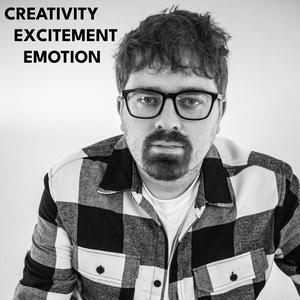
Descarga la app gratuita: radio.net
- Añadir radios y podcasts a favoritos
- Transmisión por Wi-Fi y Bluetooth
- Carplay & Android Auto compatible
- Muchas otras funciones de la app
Descarga la app gratuita: radio.net
- Añadir radios y podcasts a favoritos
- Transmisión por Wi-Fi y Bluetooth
- Carplay & Android Auto compatible
- Muchas otras funciones de la app


Creativity Excitement Emotion
Escanea el código,
Descarga la app,
Escucha.
Descarga la app,
Escucha.



